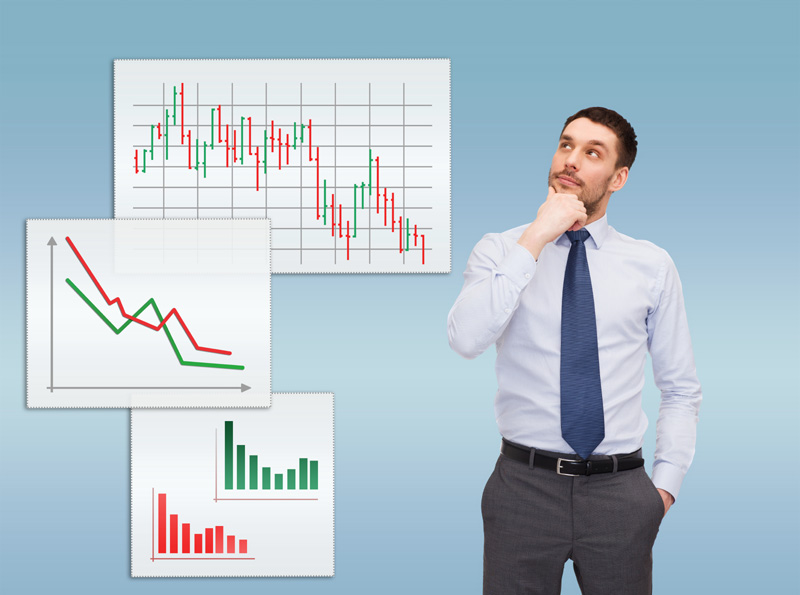
“Is it possible to make enough profit to earn a living trading Forex?”
“Can I double my account?”
“What is considered a reasonable monthly return?”
These are common questions I have encountered in the past 15 years working in the Forex industry, and I believe it is time to address these questions clearly and fairly.
“I would like to earn a living trading Forex.”
Being able to generate a high enough income from Forex trading, consistently and on a monthly basis to sustain a living is possible, but for most people, it is not probable.
To start with, you would need a huge Forex trading account to draw from in the first place. Let’s suppose you had a strategy that has historically returned 3% monthly. Depending on your family size and needs, how much income you need each month will vary, but let’s say for the sake of this scenario, you want to survive on $4000 USD monthly. That means your initial investment in your Forex trading account should be at least $134,000 for you to earn a living trading Forex.
If you depend on a larger monthly income, of course you’ll need a larger investment capital.
“Can I double my account?”
This is a loaded question. Is it possible to double your account? Yes. Is it possible to double your account monthly? It isn’t likely.
For example, suppose you invest $5000 in a Forex trading account. Your average monthly returns are 3%. Using the Forex Compounding Calculator at http://www.forex21.com/forex-compounding-calculator/, it would take 24 months of consistent trading at an average of 3% monthly returns before your account is doubled.
“What is considered a reasonable monthly return?”
Ok but 3% monthly returns in Forex based on the above examples is a ridiculously low and unsatisfactory rate of return, isn’t it?
No, that could not be further from the truth; actually 3% as a consistent monthly return of profit is very high.
Let’s illustrate with one of the non-risky forms of investments. There are only two options that I know of which enables you to invest without any risk of losing money: A savings account, or a CD (certificate of deposit). But what kind of returns could you see investing in a savings account or a CD?
Suppose you opened a high-yield CD with $10,000 at Bank of America. Using the current Bank of America* rate of 0.12% you would have earned just $36.06. This is incredibly low, but the returns on a CD are much better than what you would earn if you just left your money in a savings account. For example, at Bank of America, the APY for a savings account is just 0.01% interest.
That means that if you invest $10,000 in a savings account with 0.01% interest, that after 3 years you would have earned around $3.
On the contrary, if you have a $10,000 Forex trading account, and you earned 3% profit in one month, this would be $300.
Monthly Returns in a Speculative Market
Keep in mind Forex trading is one of many forms of high-risk, high-yield investments in speculative market. When you choose to invest your money, you have a huge variety of options available; stocks, mutual funds, options, futures, commodities, real estate. These all involve risk. Learn more about why we believe Forex trading is the best way to go.
Keep in mind that when it comes to Forex, there is no way of generating the exact same monthly return like you would if you had your account in a savings or CD account in a bank with a fixed APY. For example, on Aforex.com, in 2016 our strategy returned 24% in February but then lost 2.21% in March. Overall, for January – November 2016, the monthly average though is 4.3%, even though some months had a negative yield. Remember in Forex trading, it is the long-term performance rather than the daily or monthly.
View full 6-year performance in a live account using myfxbook.
*Rates may change and are based on the information found on Ally and Bank of America websites, respectively at the time of this article being written.
Trading foreign exchange on margin carries a high level of risk, and may not be suitable for all investors. The high degree of leverage can work against you as well as for you. Before deciding to invest in foreign exchange you should carefully consider your investment objectives, level of experience, and risk appetite. The possibility exists that you could sustain a loss of some or all of your initial investment and therefore you should not invest money that you cannot afford to lose. You should be aware of all the risks associated with foreign exchange trading, and seek advice from an independent financial advisor if you have any doubts. Hypothetical performance results have many inherent limitations. No representation is being made that any account will or is likely to achieve profits or losses similar to those shown. In fact, there are frequently sharp differences between hypothetical performance results and the actual results subsequently achieved by any particularly trading program. One of the limitations of hypothetical performance results is that they are generally prepared with the benefit of hindsight. In addition, hypothetical trading does not involve financial risk. Variables such as the ability to adhere to a particular trading program in spite of trading losses as well as maintaining adequate liquidity are material points which can adversely affect actual real trading results. Currency trading involves high risk and you can lose a lot of money.Terms and Conditions: All Trade Copier Signals generated to the client account are manageable and can be overridden by the subscriber in the client account. The subscriber reserves the right and ability to reject, close, terminate or disable the Trade Copier signals at any time. Subscribing to our service means you agree with our legal terms.
 Japan – Benefits Of A Weak Yen
Japan – Benefits Of A Weak Yen


